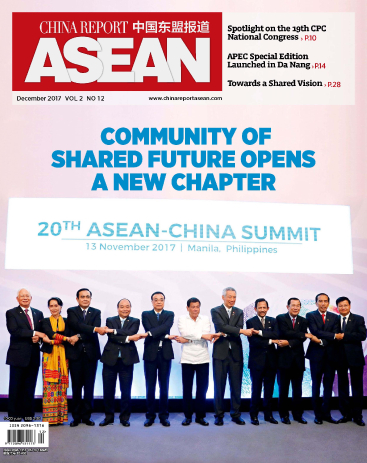利益共同体
“一带一路”沿线国家的总人口约44亿,经济总量约21万亿美元,分别占世界的63%和29%。受资源禀赋、产业基础、历史条件等因素的制约,各国之间发展不平衡,而且大部分为发展中国家。“一带一路”贯穿欧亚非大陆,东牵发展势头强劲的东亚经济圈,西连发达的欧洲北美经济圈,有望建成世界跨度最大、最具活力、发展前景看好的经济走廊,形成沿线国家经济利益对接整合的格局。“一带一路”建设旨在激发沿线各国发挥比较优势,将经济互补性转化为发展推动力。通过沿线国家的互联互通和贸易投资便利化等深度国际经济合作,打造世界经济新的增长极,最终实现互利共赢。
Community of Shared Interests
The countries along the proposed Belt and Road routes — most of which are developing countries — have a combined population of 4.4 billion and an aggregate economic output of US$21 trillion. Together, these countries represent 63 percent of the world's population and 29 percent of its economic aggregate. Individual countries each have their own natural resources, infrastructure and historical experiences; such differences, among other factors, have led to different levels of development. Spanning three continents — Asia, Europe and Africa — the Belt and Road is expected to become the world's most expansive and most dynamic economic corridor with a bright future, with vibrant East Asia at one end and the developed economies of Europe and North America at the other. Such integration will contribute to a better alignment of economic interests. In a joint effort to build the Belt and Road, each country's comparative strengths can be better exploited, and economic complementarity can be better transformed into new drivers of development. The initiative will rely on wide-ranging international economic cooperation to promote connectivity and facilitate trade and investment. It envisions a world of new economic growth, where win-win strategies are favored.
责任共同体
“一带一路”倡议由中国提出,但需要沿线国家和相关国家共同参与建设。在推动落实倡议的过程中,相关各方会有不同侧重的利益考虑,也会遇到各种难以预料的问题,这就需要大家集思广益。各国须携手应对面临的挑战,合力化解存在的威胁,共同承担产生的责任。当然,由于各国参与的深度和方式有所不同,承担的责任也不尽相同。中国领导人多次表态,“一带一路”建设不是中国的后花园,而是百花园;不是中国的独奏曲,而是各方的协奏曲。作为倡议方,中国会诚心诚意对待沿线国家,做到言必信、行必果,承担起应尽的责任。
Community of Shared Responsibility
Although the Belt and Road Initiative was proposed by China, participation of other countries along the proposed routes and related countries is indispensable to its implementation. Divergent national interests and priorities, as well as unforeseen events, could present serious challenges. Broad-based consultation is therefore essential. Only through joint efforts and shared responsibility can any threat to progress be neutralized. From this perspective, it is agreed that responsibilities could vary depending on differing levels of participation. The Chinese leadership has repeatedly affirmed that the Belt and Road is an undertaking shared by many, rather than being driven by China alone; and the process of creating such a network is a collaborative undertaking, rather than a solo performance by China. As a sponsor, China is ready and willing to act in good faith toward its partners, honor its commitments and fulfill its responsibilities.


 Copy Reference
Copy Reference